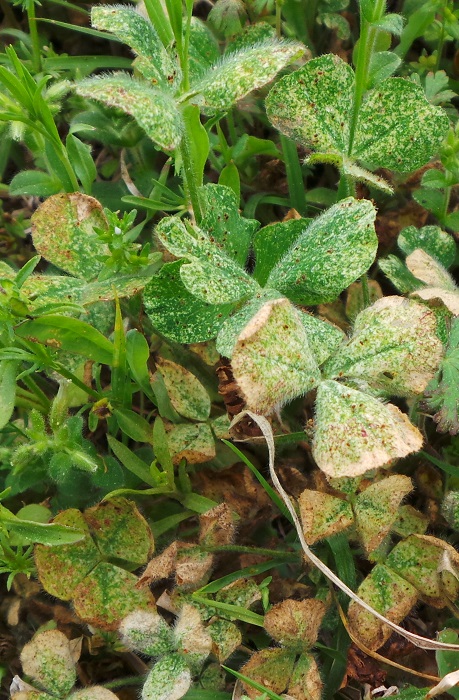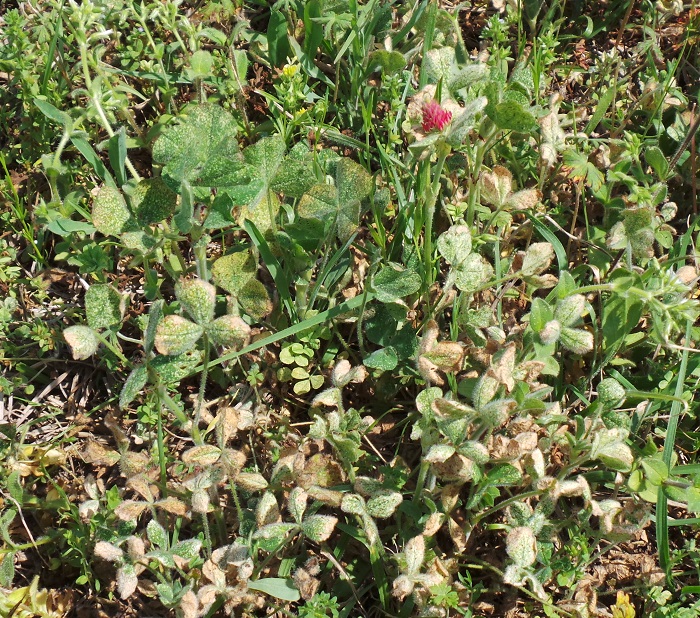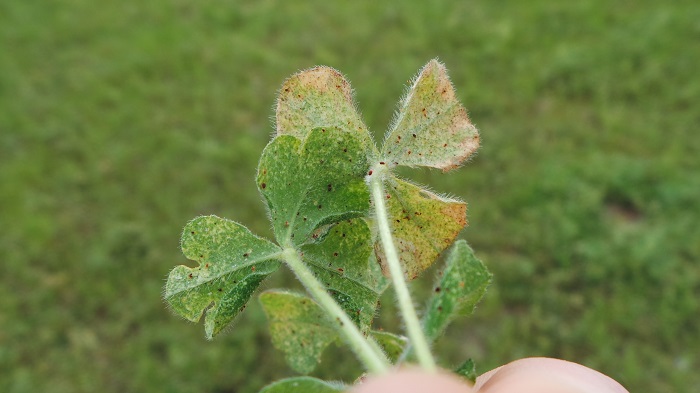Just as clover overcomes the cold temperatures and short days of winter a new problem has arrived – legume mites (Petrobia apicalis). These pests which feed on the underside of clover leaves, can cause quite dramatic symptoms in a stand of clover.
Almost exactly one year ago legume mites were found in Jackson County and an article was posted here on Panhandle Ag e-News: Legume Mite in Crimson Clover. That article explained that legume mites are relatively rare in this area and little is known regarding control measures. Unfortunately there still is not much certainty about the biological or economic effectiveness of chemical control measures. What we do know is that these “rare” pest have now been found in the area two consecutive years. Legume mites were confirmed in a Washington County field this week. There are also reports of fields with symptoms matching those of legume mites in Holmes County.
Auburn University Extension Specialist, Kathy Flanders provided some comments on legume mites: Not a lot of work has been done on this pest. It appears to have two periods of activity, spring and fall. Cool wet winters such as we have just had appear to be favorable for the pest. The best thing we can recommend is to rotate out of crimson clover in that field for at least a year. The problem seems to be worse when crimson clover is planted in the same field year after year.
There is a lot we need to learn about this pest; the Panhandle Ag Extension Team is trying to gather information and determine how widespread these pest are. If you have clover that you suspect might be infested with legume mites, please notify your county agent or contact me directly. At this point we need to gather more information on the severity of this pest, to see if further research is warranted.

If you find damage in your fields that looks similar to this contact your county extension agent. Photo credit: Mark Mauldin


